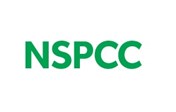Child Sexual Exploitation is not limited to particular areas of the country, family backgrounds, genders or sexual orientation. It can happen to anyone. But children who are already vulnerable in some way may be more likely to be targeted.
The British Institute of Learning Disabilities (Bild) reports that children with special educational needs and learning disabilities are more vulnerable to child sexual exploitation. The reasons for this are complex and different for each child. Children might be vulnerable because:
- They struggle to understand what exploitation is
- They have less access to education on sex and relationships
- Parents, carers and professionals may perceive children with SEND as being uninterested in sex or relationships, so incorrectly assume they cannot be exploited
- When a child is being exploited, they may be unable to tell anybody. This could be due to communication barriers or a lack of empowerment.
- They might not be believed when they tell someone what is happening to them
- They are socially isolated
- Signs that a child is being exploited, such as displaying challenging behaviour, may be overlooked as being a symptom of the child's condition or disability.

